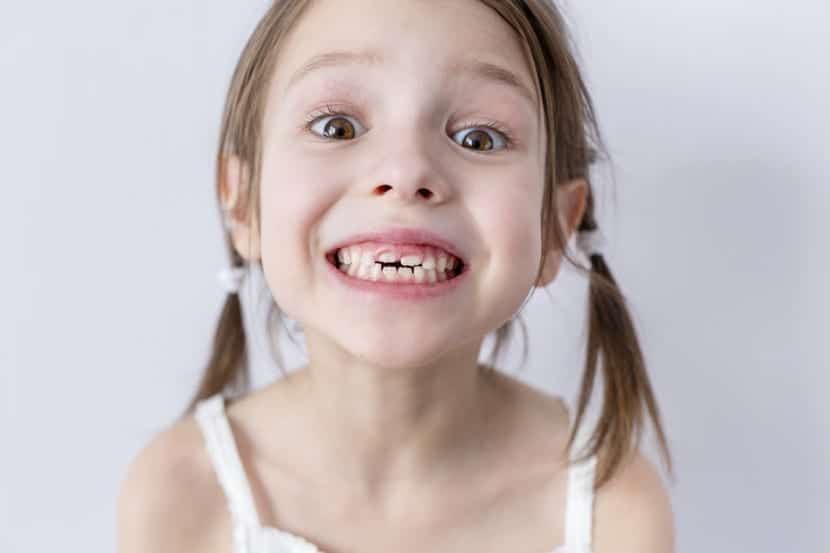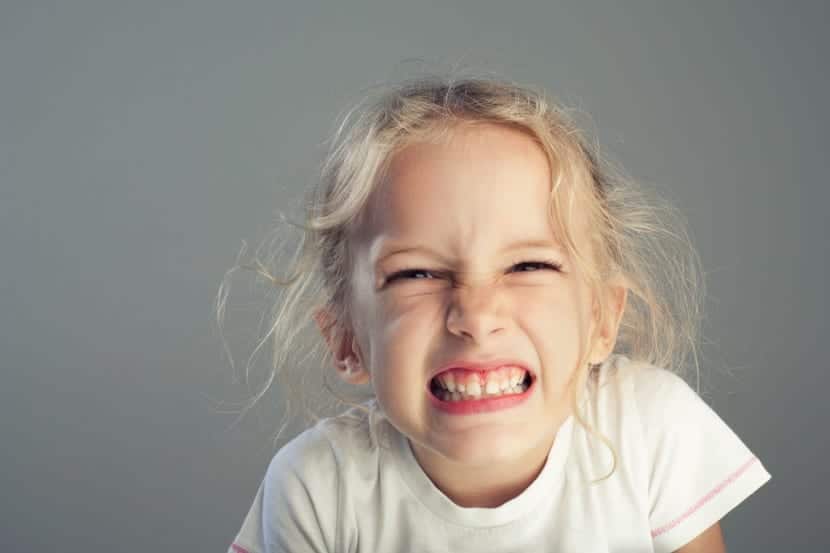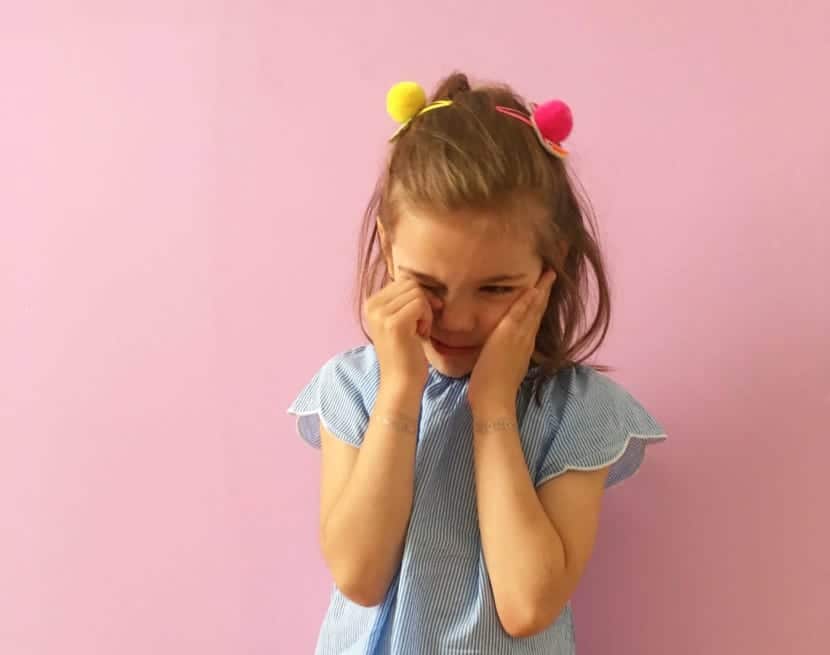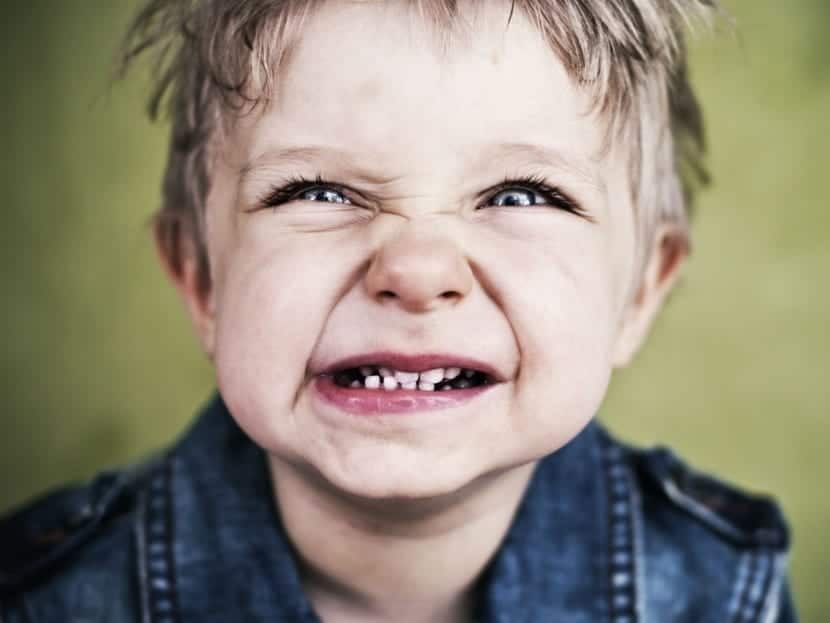
If you have noticed that your child is grinding his teeth, you may wonder if it is something normal or if there is a problem. It is a rather unpleasant sound and it is also known as infantile bruxism although it does not have to be dangerous, but Yes, there are some cases in which you must intervene to avoid negative consequences.
It is necessary for all parents to know why children can grind their teeth and if they do, what to watch out for and how to act if necessary.
Teeth grinding or bruxism
When children grind their teeth it is also known as bruxism. This occurs when a person of any age presses the upper and lower jaw against the other, clenches the teeth and produces the sound. Grinding your teeth is not considered a disease but they do exist some disorders that can make the situation worse.
Grinding your teeth at night
When teeth are grinded at night it is known as sleep-related bruxism. It is quite common during children's sleep as the jaw muscles contract. If those jaw contractions are too strong, it can cause grinding. It may be so loud that you can hear it, but most of the time, if it occurs during sleep, It is involuntary, which means that your child is not even aware that he is doing it.

Teeth grinding tends to occur most frequently during REM sleep, the second stage of sleep. Most of the time, a child who is grinding his teeth will not even wake up. Although there may be an increase in heart rate, called "micro-alarm clocks." That means that the child shows signs of waking up, even though he is not fully awake. It is not known why it occurs.
Severity of bruxism
The level of severity varies greatly. Some children may experience minor episodes and only a few cases are performed at night, there are also cases of severe bruxism. The more severe the bruxism and the more frequent the episodes, the greater the risk of tooth damage. Prolonged episodes of teeth grinding can cause dental damage as a result of tooth wear.
Teeth grinding can start very soon. Although most children who grind their teeth usually disappear by the age of six, others may continue the problem into adulthood. As many as 18% of adults between 18 and 29 years old experience bruxism and approximately 6% experience it after the age of 60. Teeth grinding occurs in both males and females.
Signs
In most cases, parents will know that their child grinds their teeth just by looking and listening. As a child, he is often not even aware of what he is doing.A child will also grind his teeth while awake, and the parent or caregiver can help redirect the child's attention to correct behavior.

Causes
Doctors are not completely sure what causes teeth grinding. Instead of just one cause of teeth grinding, it is thought that there are many factors that influence a child to have bruxism. It may be that the central nervous systems, the mouth, the sleep-wake cycle, genetics, and the environment are all involved.
In some cases, there is also a link between sleep disorders and teeth grinding, such as sleep apnea, although that is more common in adults.
Many parents mistakenly think that grinding their teeth means that your child is upset or has a nightmare while sleeping, but most of the time that is not true. In cases where teeth grinding occurs at night or during sleep and naps for a young child, there may be no cause. For some children, however, teeth grinding can be caused by periods of stress or anxiety, such as a major life event or trauma.
Teeth grinding can also be the result of your child experiencing pain. For example, if they have a teething or ear infection, they may resort to grinding their teeth for pain relief. Some children may also grind their teeth as a result of misalignment of their teeth, leading to bruxism because that's the way your teeth line up in your mouth.
In limited cases, stress and anxiety can lead some children to grind their teeth. However, while stress and anxiety can also increase teeth grinding, there is no connection between teeth grinding and behavior or personality problems.

Health effects
In most cases, teeth grinding is not dangerous. Because tooth wear occurs in children under the age of six and tends to fade as they grow older, it will not cause any permanent damage because they do not have permanent teeth yet. Every child is different and if you have any concerns or notice a break in your child's teeth, you have to talk to your doctor or dentist.
Also, if your child is over the age of six and is still grinding his teeth, you'll also want to speak with a doctor or dentist to see what kind of options you have to prevent any long-term damage to his teeth and find out what (if anything) It may be causing teeth grinding.
If you have any doubts, if you think your child's bruxism is excessive, go to your pediatrician and inform them about what is happening. They will assess if the wear on the teeth is too much or if you may need to speak with a child psychologist to seek emotional focus in case it is due to anxiety or stress.